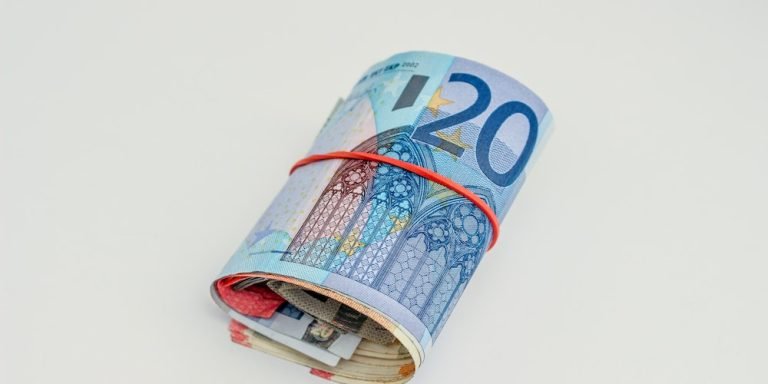In this blog post, we’ll discuss frugal living and how it can help you save for the future.
Introduction
In an age where managing expenses and building a secure financial future is more crucial than ever, the concept of frugal living has gained significant traction.
Frugal living is not about deprivation or sacrificing the things you love; instead, it’s a mindful and intentional approach to managing your resources.
It’s about making the most of every dollar, cutting unnecessary costs, and finding creative ways to live a fulfilling life on a budget.
In “The Ultimate Guide to Frugal Living: Tips and Tricks,” we’ll embark on a journey to explore the art and science of frugality.
From setting clear financial goals to mastering budgeting, grocery shopping, and even planning for your future, this guide will equip you with the knowledge and tools to embrace frugal living as a pathway to financial security and a brighter tomorrow. Let’s begin your frugal living adventure today.
Table of Contents
Understanding Frugal Living
Understanding frugal living requires recognizing its core principles: living within your means, prioritizing needs over wants, and resourcefulness.
It’s about making conscious financial decisions that empower you to save, invest, and ultimately achieve financial stability while minimizing wasteful spending and embracing a more intentional and rewarding way of life.
Brief explanation of frugal living

Frugal living entails a deliberate and thoughtful approach to managing one’s financial resources. It involves making conscious choices to reduce unnecessary spending, eliminate wasteful habits, and find economical alternatives, all while maintaining a fulfilling and well-balanced lifestyle. It’s a strategic way to secure your financial future and achieve peace of mind.
Definition of frugal living
Frugal living is a mindful lifestyle choice characterized by prudent financial management. It involves consciously minimizing unnecessary expenses, prioritizing savings and investments, and seeking value in all aspects of life.
This approach cultivates financial security, reduces debt, and fosters a simpler, more purposeful existence, all while enhancing overall well-being.
Benefits of frugal living
The benefits of frugal living are multifaceted and encompass various aspects of life:
- Financial Security: Frugal living provides a safety net by enabling you to build savings and an emergency fund. This financial cushion safeguards against unexpected expenses and economic uncertainties.
- Debt Reduction: By cutting unnecessary expenses and prioritizing savings, frugal living aids in paying off debts faster, reducing the burden of interest payments, and ultimately achieving a debt-free life.
- Peace of Mind: Knowing that you have financial resources to fall back on can reduce stress and provide peace of mind. This tranquility allows you to focus on other aspects of life.
- Savings and Investments: Frugal living facilitates consistent savings, which can be channeled into investments, such as stocks, real estate, or retirement accounts, enabling your money to grow over time.
- Financial Freedom: By living within your means and curbing excessive spending, you gain the freedom to make choices that align with your values and long-term goals, rather than being driven by financial constraints.
- Reduced Environmental Impact: Frugal living often goes hand in hand with minimalism and a reduced carbon footprint. Consuming less and reusing items contributes to a more sustainable lifestyle.
- Simpler Life: Embracing frugality can help declutter your life and prioritize experiences and relationships over material possessions, leading to a simpler and more meaningful existence.
- Resourcefulness: Frugal living encourages resourcefulness, creativity, and problem-solving as you seek cost-effective alternatives and make the most of what you have.
- Improved Budgeting Skills: You’ll develop better budgeting and financial management skills, which are transferable to all aspects of life and can lead to greater financial stability.
- Long-Term Goals: Whether it’s buying a home, traveling, or retiring comfortably, frugal living can help you achieve long-term financial goals by consistently saving and investing your resources.
Incorporating frugality into your lifestyle can lead to financial well-being, reduced stress, and a deeper appreciation for the value of money, ultimately enhancing your overall quality of life.
Myths and misconceptions about frugality
Myths and misconceptions about frugality often cloud the true understanding of this practical and beneficial lifestyle:
- Frugality Means Extreme Deprivation: A common misconception is that frugal living equates to a Spartan lifestyle devoid of enjoyment. In reality, it’s about making thoughtful choices, not eliminating pleasure. You can still enjoy life while being frugal.
- It’s Only for Those in Financial Crisis: Frugality is not exclusive to people facing financial hardship. It’s a wise approach for anyone seeking financial security, savings, and a mindful use of resources, irrespective of income level.
- Frugality Stifles Generosity: Some believe that frugal individuals are stingy or unwilling to help others. In truth, frugal living can enable you to be more generous by freeing up resources to support causes you care about.
- It’s About Pinching Every Penny: Frugality doesn’t mean obsessing over every cent. It’s about prioritizing spending, making informed choices, and focusing on high-impact areas while allowing for occasional indulgences.
- Frugality Requires a Minimalist Lifestyle: Although minimalism and frugality often align, they are not the same. You can embrace frugality while enjoying a lifestyle with possessions that bring you value and happiness.
- Frugal Living Is Time-Consuming: While there may be some initial time investment in learning to budget and find frugal solutions, it doesn’t need to be excessively time-consuming. Once established, frugal habits often become second nature.
- Frugality Is Only About Money: Frugal living extends beyond finances. It encourages mindful consumption and sustainability, reducing waste and fostering a deeper appreciation for the environment.
- It’s All About DIY: Frugal living doesn’t mean you have to make everything from scratch or repair everything yourself. You can be frugal by choosing cost-effective solutions or services when they make sense.
- Frugal People Are Always Miserable: On the contrary, many frugal individuals lead happy, fulfilled lives because they prioritize experiences, relationships, and financial peace of mind.
- Frugality Is a One-Size-Fits-All Approach: There’s no universal frugal living model. It’s adaptable to your unique goals, values, and circumstances. You can tailor it to suit your preferences and priorities.
Understanding the realities of frugal living can help dispel these myths and show that it’s a flexible and sustainable approach to financial well-being and a more intentional, meaningful life.
Setting Your Frugal Living Goals
Setting your frugal living goals involves defining financial objectives, creating a roadmap for savings, and aligning spending habits with priorities.
Assessing your financial situation
Assessing your financial situation is a critical first step in your journey toward frugal living. It involves gaining a comprehensive understanding of your financial health, which allows you to make informed decisions and set realistic goals.
Start by creating a detailed inventory of your income sources, including your salary, investments, and any other sources of revenue.
Next, meticulously track your expenses, categorizing them to identify areas where you can cut back. Assess your debts and assets, including savings and investments. Evaluate your financial goals, whether it’s to eliminate debt, save for a home, or retire comfortably.
This assessment forms the foundation for your frugal living plan, helping you tailor strategies to your unique financial circumstances and ambitions.
Establishing clear financial goals
Establishing clear financial goals is a pivotal element of successful frugal living. It’s the compass that guides your journey to financial well-being.
Start by defining specific, measurable, achievable, relevant, and time-bound (SMART) objectives. These goals might include building an emergency fund, paying off debt, saving for a major purchase, or preparing for retirement.
Having precise targets motivates and directs your financial decisions. Additionally, categorize your goals as short-term, intermediate, or long-term, based on your timeline and urgency.
Clear financial objectives help you prioritize your spending, maximize savings, and stay on track, ultimately leading to a more secure and prosperous financial future.
Creating a frugal living plan
Creating a frugal living plan is the blueprint for achieving your financial goals and enhancing your financial well-being. It involves designing a comprehensive strategy that aligns with your priorities, income, and expenses.
Start by setting a budget that allocates your income to cover necessities, savings, and debt reduction. Identify areas where you can cut costs and find opportunities for resourceful spending. Plan for emergencies by building an emergency fund.
Develop a timeline for achieving short-term and long-term goals. Continuously monitor and adjust your plan as circumstances change, ensuring it remains relevant and effective.
A well-crafted frugal living plan empowers you to take control of your finances, minimize financial stress, and work towards financial security and peace of mind.
Budgeting and Tracking Expenses
Budgeting and tracking expenses are essential components of financial success. Learn to manage your money effectively and achieve your financial goals with smart budgeting and expense tracking.
Importance of budgeting in frugal living
The importance of budgeting in frugal living cannot be overstated. It serves as the backbone of your financial strategy, providing a roadmap for wise spending and saving. Budgeting empowers you to:
- Gain Control: It allows you to take control of your finances, ensuring that you know where your money goes and why.
- Set Priorities: Budgets help you identify your financial priorities, ensuring you allocate resources to what matters most.
- Limit Impulse Spending: By tracking expenses, you become more aware of impulse purchases and can curb them.
- Maximize Savings: Budgeting ensures that a portion of your income is consistently directed towards savings and debt reduction.
- Avoid Debt: It prevents overspending and accumulating debt, which is crucial for long-term financial health.
- Prepare for Emergencies: A well-planned budget includes an emergency fund, providing a safety net for unexpected expenses.
- Achieve Goals: Budgets allow you to save for specific goals, whether it’s a vacation, a home, or retirement.
- Monitor Progress: With a budget, you can track your financial progress, making adjustments when necessary.
- Reduce Stress: Knowing that your finances are organized and accounted for can significantly reduce financial stress.
- Support Frugal Lifestyle: A budget helps you align your spending with frugal living principles, making it easier to achieve a more intentional and meaningful lifestyle.
In essence, budgeting is the cornerstone of frugal living, enabling you to make informed financial decisions that lead to a secure future and a more fulfilled life.
Tips for creating an effective budget
Creating an effective budget is a pivotal skill for managing your finances and achieving your financial goals in frugal living. Here are some key tips to help you craft a budget that works for you:
- Set Clear Goals: Begin by defining your financial objectives. Whether it’s paying off debt, saving for a major purchase, or building an emergency fund, having clear goals is essential.
- Analyze Your Income: Calculate your total income from all sources, including your salary, investments, and any other revenue streams.
- Track Your Expenses: Document all your expenses, categorizing them into fixed (e.g., rent, mortgage) and variable (e.g., groceries, entertainment).
- Differentiate Needs from Wants: Distinguish between essential expenses (needs) and discretionary spending (wants). Prioritize needs and allocate funds accordingly.
- Create Categories: Divide your budget into categories, such as housing, transportation, groceries, entertainment, and savings. Assign a specific amount to each category.
- Emergency Fund: Allocate a portion of your budget to building and maintaining an emergency fund to cover unexpected expenses.
- Be Realistic: Ensure your budget is realistic and sustainable. Avoid setting overly restrictive spending limits, which can be difficult to follow long-term.
- Monitor Regularly: Regularly track your spending against your budget. Use apps or spreadsheets to make this process more manageable.
- Adjust as Needed: Be flexible with your budget. Life circumstances can change, so adapt your budget when necessary to accommodate new priorities or challenges.
- Stay Accountable: Share your budget with a trusted friend or family member who can help hold you accountable for your financial decisions.
- Prioritize Debt Repayment: If you have debts, allocate a portion of your budget for debt repayment, focusing on high-interest debts first.
- Save and Invest: Make savings a non-negotiable part of your budget. Allocate a portion of your income to savings and investments, aiming for financial growth.
- Curb Impulse Spending: Identify areas of overspending and find ways to curb impulse purchases. Consider implementing a “waiting period” before making non-essential purchases.
- Review and Revise: Periodically review your budget to assess your progress and make adjustments as your financial situation evolves.
- Seek Professional Help: If you’re facing complex financial challenges, consider consulting a financial advisor for personalized guidance.
A well-structured budget is a powerful tool for achieving your financial objectives in frugal living. It enables you to manage your money effectively, make informed choices, and ultimately secure your financial future while living a fulfilling and intentional life.
Tools and apps for tracking expenses
Tracking expenses is a crucial aspect of effective financial management, especially in the context of frugal living. Several tools and apps are available to simplify this process and provide valuable insights into your spending habits. Here are some popular options:
- Mint: Mint is a comprehensive, free budgeting tool that syncs with your bank accounts and credit cards. It automatically categorizes transactions, provides spending trends, and sends alerts for bill payments.
- Personal Capital: This tool is great for those who want a holistic view of their finances. It tracks investments, retirement accounts, and expenses in one platform, offering insights into your net worth and retirement planning.
- YNAB (You Need a Budget): YNAB is a highly-regarded budgeting app that focuses on allocating every dollar to specific categories. It promotes a zero-based budgeting system to ensure every dollar has a purpose.
- Goodbudget: Based on the envelope budgeting system, Goodbudget helps you allocate money into virtual envelopes for various expense categories. It’s ideal for those who prefer a visual and tactile approach.
- PocketGuard: PocketGuard is a user-friendly app that links to your bank accounts, tracks your income and expenses, and offers insights on how much money you can safely spend each day.
- Wally: Wally is a simple and intuitive expense tracking app that allows you to manually input expenses and scan receipts. It offers insights into your spending patterns and provides a clear overview of your financial health.
- Expensify: Designed for business expenses, Expensify also works well for personal expense tracking. It simplifies expense reporting and automates the receipt tracking process.
- Shoeboxed: This app specializes in receipt management. You can scan and store paper receipts, making it easy to track expenses for tax purposes or personal budgeting.
- Splitwise: Ideal for roommates, couples, or friends sharing expenses, Splitwise simplifies the process of splitting bills and tracking shared expenses.
- QuickBooks: While primarily a business accounting tool, QuickBooks can be useful for self-employed individuals or freelancers looking to track income and expenses efficiently.
- Evernote: Not specifically an expense tracker, Evernote is a versatile note-taking app that can be used to record and organize expenses and receipts digitally.
Selecting the right tool or app for tracking expenses depends on your preferences and the level of detail you require. Many of these tools offer both mobile and web versions, so you can choose the one that aligns best with your lifestyle and budgeting needs.
Conclusion
We’ve embarked on a journey to unlock the transformative power of mindful financial management. Frugal living is not just about pinching pennies; it’s a deliberate and intelligent approach to securing your financial future while savoring life’s joys.
Throughout this guide, we’ve explored the foundational principles of frugality, from setting clear financial goals to the art of budgeting, grocery shopping, and debt management. We’ve touched on the importance of resourcefulness, and the profound benefits that frugal living offers—financial security, peace of mind, and a path toward financial freedom.
As you embark on your own frugal living adventure, remember that it’s not a one-size-fits-all journey. You have the flexibility to adapt these tips and tricks to your unique circumstances and aspirations. The key is to embrace frugality as a lifestyle choice that empowers you to make informed decisions and prioritizes your financial well-being.
So, whether you’re just starting or looking to enhance your current financial habits, the ultimate guide to frugal living is your companion on this transformative path.
With each frugal choice, you’re paving the way to a brighter financial future and a more intentional, fulfilling life. It’s a journey filled with wisdom, purpose, and the promise of financial peace, one choice at a time.
Frequently asked questions
Q: What is frugal living, and how is it different from being cheap?
A: Frugal living is a mindful approach to managing your finances by making cost-effective choices while maintaining a fulfilling life. Being cheap often implies cutting expenses at any cost, even if it sacrifices quality or well-being.
Q: Is frugal living only for people on a tight budget?
A: No, frugal living is for anyone looking to improve their financial health, regardless of their income level. It’s about making the most of your resources and aligning your spending with your values and goals.
Q: Can I still enjoy life while practicing frugal living?
A: Absolutely! Frugal living is not about deprivation. It’s about prioritizing what truly matters to you and finding cost-effective ways to enjoy life’s pleasures.
Q: How can I create a budget that works for me?
A: To create an effective budget, start by setting clear financial goals and categorizing your expenses. Use budgeting tools or apps to track your spending, and regularly review and adjust your budget as needed.
Q: What are the benefits of tracking expenses with apps and tools?
A: Tracking expenses with apps and tools simplifies the process, provides insights into your spending habits, and helps you make more informed financial decisions. It can also save you time and reduce manual record-keeping.
Q: What if my financial situation changes?
A: Financial situations often change. If your income, expenses, or goals change, be flexible with your budget and adjust it accordingly to stay on track.
Q: Is there a one-size-fits-all approach to frugal living?
A: No, frugal living is adaptable to your unique circumstances and priorities. It’s not a one-size-fits-all approach but a flexible framework that you can customize to suit your needs and goals.
Q: How can I overcome challenges and stay motivated in frugal living?
A: Challenges are part of the journey. Stay motivated by reminding yourself of your financial goals, seeking support from others, and focusing on the long-term benefits of frugal living.
Q: Can I be frugal and still be environmentally conscious?
A: Yes, many frugal living practices align with environmental consciousness. Reducing waste, reusing items, and consuming mindfully can contribute to a more sustainable lifestyle.
Q: Is it too late to start practicing frugal living?
A: It’s never too late to start practicing frugal living. Regardless of your age or financial situation, embracing frugality can lead to a more secure financial future and a more intentional, meaningful life.



